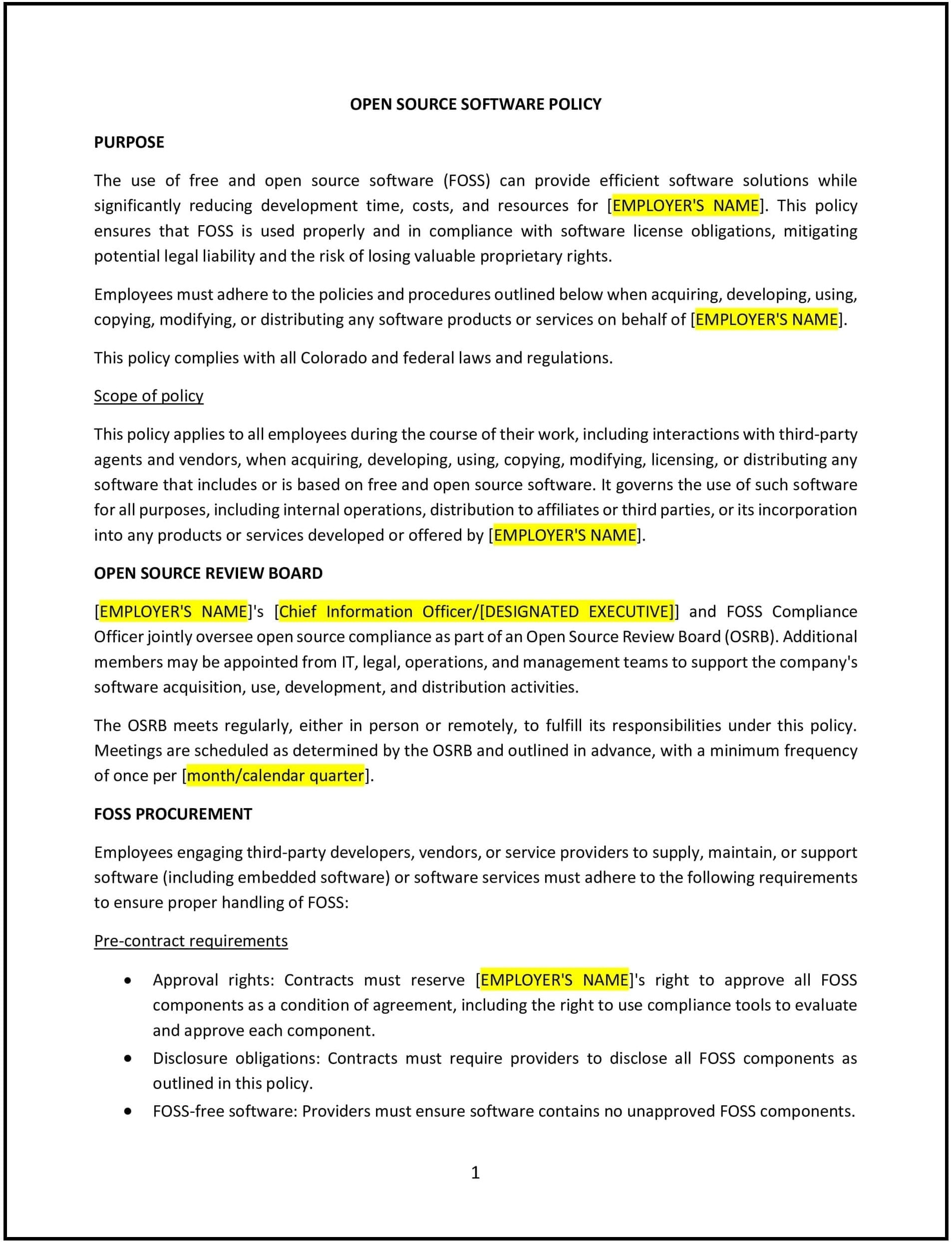Open source software policy (Colorado): Free template
Got contracts to review? While you're here for policies, let Cobrief make contract review effortless—start your free review now.

Customize this template for free
Open source software policy (Colorado)
An open source software (OSS) policy helps Colorado businesses manage the use, development, and contribution to open source software responsibly and effectively. This policy outlines guidelines for compliance, risk management, and contribution practices to ensure alignment with the organization’s goals and legal obligations.
By implementing this policy, businesses can leverage the benefits of open source software while protecting their intellectual property and reducing potential legal risks.
How to use this open source software policy (Colorado)
- Define usage guidelines: Specify which open source licenses are acceptable and how open source software can be used within the business.
- Manage contributions: Establish rules for employee contributions to open source projects, including approval processes and ownership considerations.
- Protect intellectual property: Ensure employees understand how to avoid inadvertently disclosing proprietary code or business-sensitive information.
- Review compliance: Implement a process for reviewing open source licenses to ensure compatibility with organizational and legal requirements.
- Monitor dependencies: Regularly audit open source software used within the business to identify and address potential vulnerabilities or licensing issues.
Benefits of using this open source software policy (Colorado)
This policy offers several benefits for Colorado businesses:
- Reduces risks: Helps prevent potential legal disputes by ensuring compliance with open source license requirements.
- Protects proprietary assets: Safeguards intellectual property by defining clear boundaries for using and contributing to open source projects.
- Enhances software quality: Encourages responsible use of open source software to improve development processes.
- Promotes collaboration: Provides a framework for employees to contribute to open source projects while aligning with business goals.
- Supports compliance: Aligns open source practices with Colorado’s legal and regulatory landscape.
Tips for using this open source software policy (Colorado)
- Train employees: Educate employees on acceptable open source practices, including compliance with license terms and contribution guidelines.
- Establish approval processes: Require review and approval for the use or contribution of open source software in business projects.
- Monitor software use: Conduct regular audits to track open source usage and identify potential issues.
- Keep the policy current: Update the policy as new open source licenses emerge or as Colorado’s legal requirements change.
- Encourage responsible innovation: Promote open source contributions that align with business goals and enhance professional development.